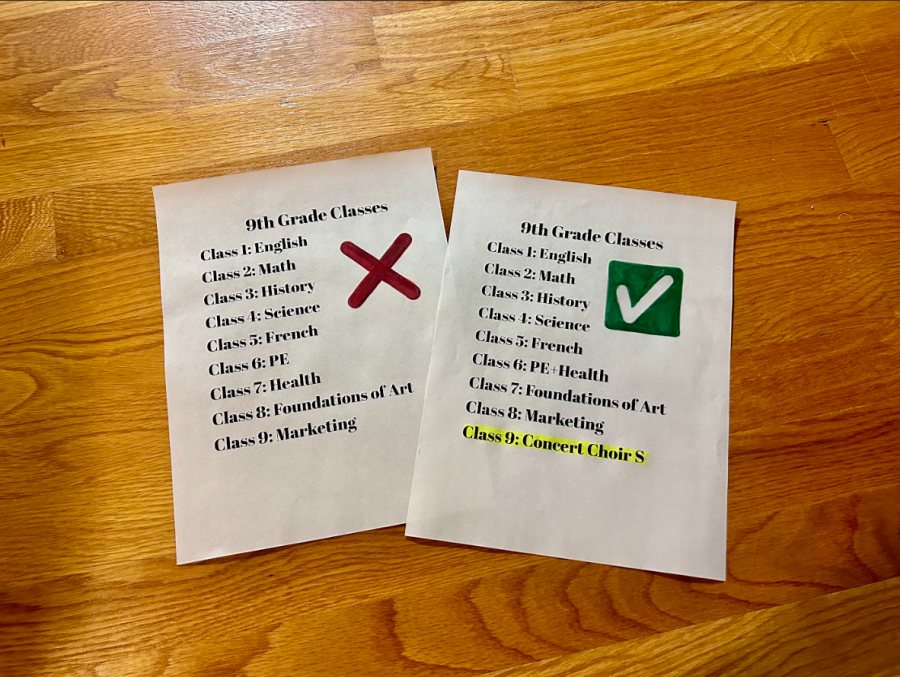 By Timmy Delouchrey
By Timmy Delouchrey
Sports Editor
Sexting culture has taken a spike in involvement and there’s no denying it. The recent inappropriate pictures scandal that has swept through the halls of WA has put out a school wide awareness of the repercussions and dangers of engaging in sexting.
Examples such as this one hit much harder than any legal lesson we’ve had or foreboding warning from our parents – if we have gotten either at all. In the past couple of weeks, it has been shown that sending nude pictures and/or distributing them is a real crime with real consequences.
According to dosomething.org, a website dedicated largely to slowing down sexting, 40% of girls have engaged in sending nude photos. That is a number that is guaranteed to blow the minds of many adults, but when I, a student, see that figure, it doesn’t surprise me. In fact, I feel like that might even be a conservative estimate. Needless to say, there is a problem and that problem has gotten drastically out of hand, and not enough steps have been taken to prevent sexting.
Learning briefly in health class is not enough. I don’t mean to to knock our school’s health staff, but it is highly unlikely that during a sexting exchange teachers’ voices are in the back of students’ minds, especially if students only learned about the consequences via a quick and uncomfortable lesson. We hear time and time again that something as serious as sexting will follow us around for the rest of our lives, but what does that really mean? Such an abstract warning has obviously failed to be interpreted by the student body as a legitimate one.
Unfortunately, waves that are large enough to have a serious impact are caused more often when something this intimidatingly serious and important happens to people we know and see every single day. WA students are not educated nearly enough about these types of situations. Until recently, I had no real understanding of the laws involving sexual assault, harassment, etc. in terms of sexting, and parents are unlikely to have extensive knowledge of the subject either. As a result of the way technology has grown, it is resolutely important that students be aware of these laws. The school has a responsibility to effectively and aggressively educate students on the consequences that may ensue following their actions.
Students and faculty alike feel very strongly in a particular way in regards to underage sexting: uncomfortable. And that just builds upon the issue. Parents and educators feel too uncomfortable to educate students on the matter, and students feel too uncomfortable to listen to them. Both parties need to understand that an awkward hour of your life is a much better alternative than the hour you could potentially spend with your parents at the police station as you identify nude photos of yourself in front of them because you refused to listen in the first place.
We need to have the consequences and reasoning against sexting culture drilled into heads in an educational setting. Over three months ago, the school saw the most effective drug presentation that our school puts on from Chris Herren. There are powerful speakers on every life-changing issue whether it be drug use, sexting, and more, and instituting a “Herren Model” in regards to sexting might be just what our school needs.







reluctant Westford Mom • Apr 15, 2015 at 8:03 am
I find it amazing how tech-savvy our kids think they are — and they do such stupid things as this. This is OLD news that what is put out on your phone, facebook page, etc. is there forEVER. So much for tech-savvy.
I think probably as far down as middle school this information should be out there — and start with the parents. Have the police come in and educate. Make it mandatory before your child enters high school. Have every parent and freshman sign off that they understand these offenses. (Oh yeah, and the drug issues, tack those on too — I understand that’s another area where we’re not so stellar. But that’s another topic.) Then continue on. And consequences. Immediate and appropriate consequences. Maybe students should be subject to random checks of their phones. With privilege comes responsibility too. I wish they didn’t have their phones in school, but is also convenient to be able to get a hold of my child at the end of the day to plan schedules. We’ve all gotten used to the convenience of technology. That is unavoidable. But it could be more strictly monitored. Kids could have to register their phone numbers with the school in order to have the privilege of having it on school property.
I do think there should be a category for a “first offense” — although that doesn’t help the individual whose picture is out to the world to see. But in most instances they are the one who started it, no? What about have these students sit in a “job interview” with a group of random strangers and then propose to show these pictures to this group? What about Grandma? Little cousin Jimmy? The guy who picks up the recycling? The librarian checking out your books? The kid checking out your groceries? Think of their own children or nieces and nephews doing a search 20 years from now. Make them FEEL what is going on when they push one little button. See how smart and cool they think they are then. For repeat offenders, take them to the Concord prison and imagine any inmate there seeing their image. Have a sleepover at a juvenile detention center one day and UMass Lowell the next. Which one do you choose? Sooner or later this generation has to take responsibility for the technology they purport to be masters of.
Perhaps now, too, the administration will support those kids who are not on facebook, nor want to be and make it a school policy for communication in any school activity to be a more generally appropriate and approved system such as the gmail everyone is required to subscribe.
Michael Tricca • Apr 16, 2015 at 10:45 am
It’s important to keep in mind that this is a certain (however unfortunately large) demographic. Writing teens off as numbskulls because they’re teens doesn’t do much to help. Many of us, believe it or not, know what we’re doing regarding technology and the Internet (pardon me if I’m starting to sound sarcastic).
Mom, I appreciate and agree with many of the things you said here, however, consequences- consequences-consequences is *not* the proper way to deal with this scenario. Teenagers need to know the repercussions of what they do, sure. They need to do that this will affect everything they do from there, every professional interaction they have. They need to know that there are laws and yes, consequences attached to sexting. Building more walls doesn’t do a thing; let’s face it, performing routine checks on people’s phones is invasive and rather unrealistic. So is taking the school on jail/juvie trips, and banning the use of phones in school.
The school can fix things by increasing awareness of what’s going on and instilling teens with a sense of responsibility, not by shoving that responsibility down their throats.
Anonymous • Mar 29, 2015 at 5:37 pm
I think what should be done is that the freshmen health class’s that are teaching it should have the lesson formed and run by students. The students that run the lecture should have had exepeince with it so they can go through stuff only they would know. It also depends on which adult the information is coming from as to how much water their lesson holds.
Kayleigh McHugh • Mar 28, 2015 at 5:04 pm
Great article! Both this and Kathleen’s have great points. I definitely think WA needs to reform how to tackle this problem from the beginning, rather than clamoring to fix it once it has become a serious issue.